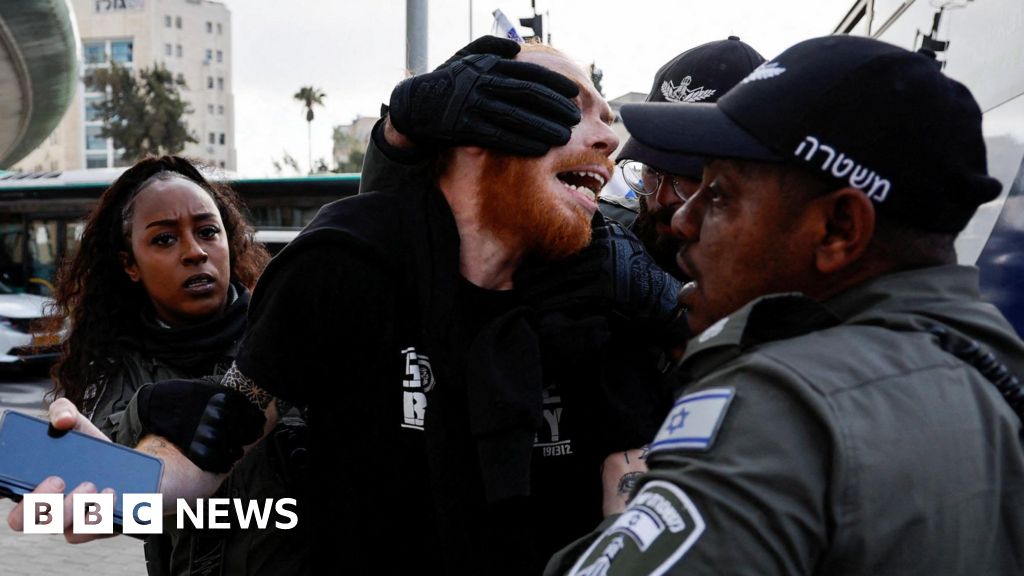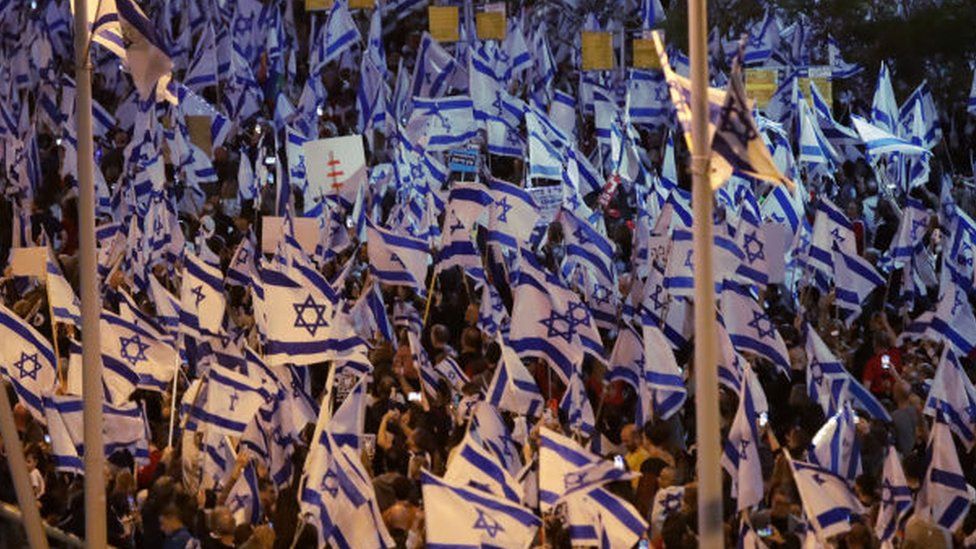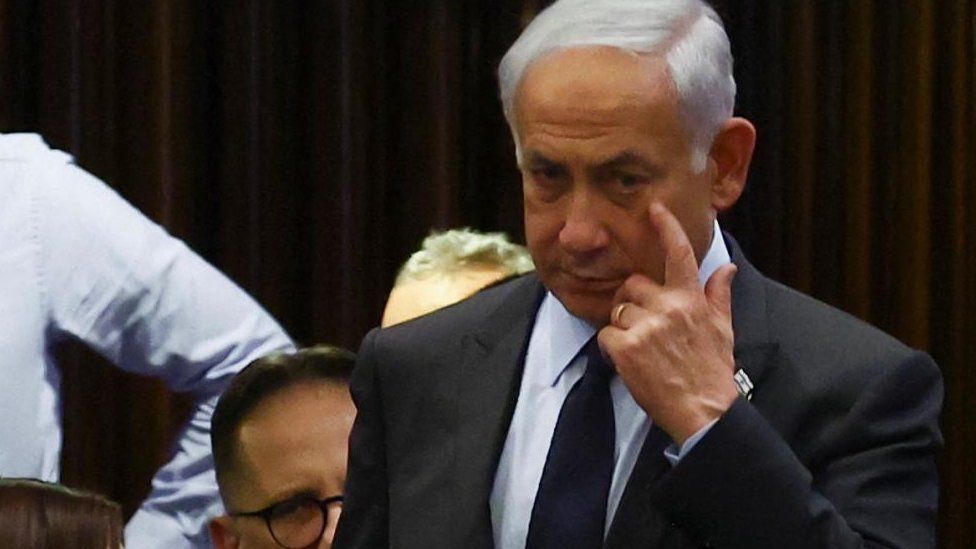
An uneasy calm is returning to Israel after Prime Minister Benjamin Netanyahu announced he would delay a key part of controversial plans to overhaul the justice system.
On Monday night he said he would pause the legislation to prevent a “rupture among our people”.
However it is unclear what a delay will achieve beyond buying time.
It followed intensified protests after he fired his defence minister, who had spoken against the plans.
In unprecedented events, the country’s biggest trade union called a strike, and Israelis watched society close down around them.
From the main airport to shops and banks – even in hospitals – services were stopped. The co-ordinated action was designed to push Mr Netanyahu back from the brink of pushing through the reforms by the end of this week.
Opposition Leader Yair Lapid called it the “biggest crisis in the history of the country”.
The government, Israel’s most right-wing ever, is seeking to take decisive control over the committee which appoints judges. The reforms would give the parliament authority to override Supreme Court decisions with a basic majority and would make it difficult to declare a prime minister unfit for office and remove them from power.
Mr Netanyahu said the changes would stop courts over-reaching their powers, but critics said they would help him as he faces an ongoing trial for corruption. He has been on trial facing charges of bribery, fraud and breach of trust in three cases. The prime minister denies any wrongdoing and claims he is the victim of a “witch hunt”.
The proposed changes have provoked an outpouring of anger from nearly all parts of Israeli society, including parts of its powerful military, since they were announced on 4 January.
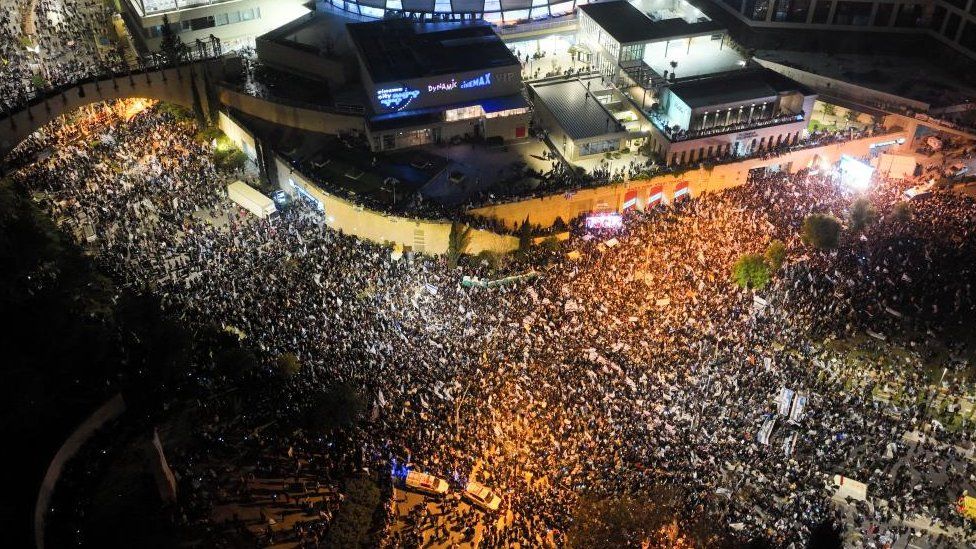
When he finally addressed the nation on Monday night, he was quick to cast blame. He accused an “extremist minority” of trying to divide the nation, and criticised military reservists who had opposed the bill by saying they wouldn’t report for duty. His own part in the country’s upheaval was not acknowledged.
The solution Mr Netanyahu has proposed will buy him time, but it won’t solve the problem – demonstrators were fighting for this bill to be scrapped, not delayed.
Israel’s opposition have said they’ll enter into fresh dialogue.
Mr Netanyahu’s far-right coalition partner, the Jewish Power party, said they had withdrawn a veto on any delay to passing the reforms in return for a guarantee that Mr Netanyahu would pass them during the next session of parliament.
That could happen any time from the end of April, when parliament returns following a recess which begins on Sunday.
Itamar Ben-Gvir, Jewish Power’s leader, said he accepted the delay because, in exchange, Mr Netanyahu had agreed to put his national security ministry in charge of a new “national guard”.
In the heart of Jerusalem, around the Knesset, supporters and critics held counter-protests. One thing united them – the blue and white flag waved by both groups. This is one nation, for weeks bitterly divided and Israelis know it is not over yet.
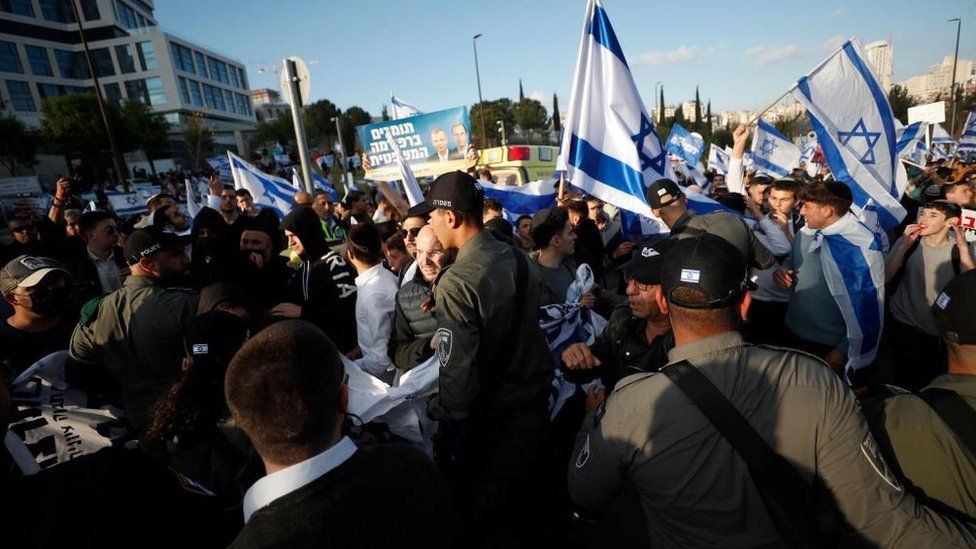
Protests erupted on Sunday after Netanyahu fired his defence minister Yoav Gallant, who had spoken out against controversial plans to overhaul the justice system.
However a nationwide strike put forward by the Histadrut labour union was called off after Mr Netanyahu said he would delay the reforms.
Israel’s president, Isaac Herzog, said the delay was “the right thing to do”. He had previously called for an immediate halt to the plans.
Mr Lapid cautiously welcomed the delay to the reform package.
“If the government engages in a real and fair dialogue we can come out of this moment of crisis – stronger and more united – and we can turn this into a defining moment in our ability to live together,” he said.
Elsewhere, the White House said US President Joe Biden would address the Israeli prime minister’s decision later on Monday.
Spokesperson John Kirby said the United States remained concerned about the situation in Israel but declined to comment specifically on the delay.
Related Topics
-
-
16 hours ago

-
-
-
21 hours ago
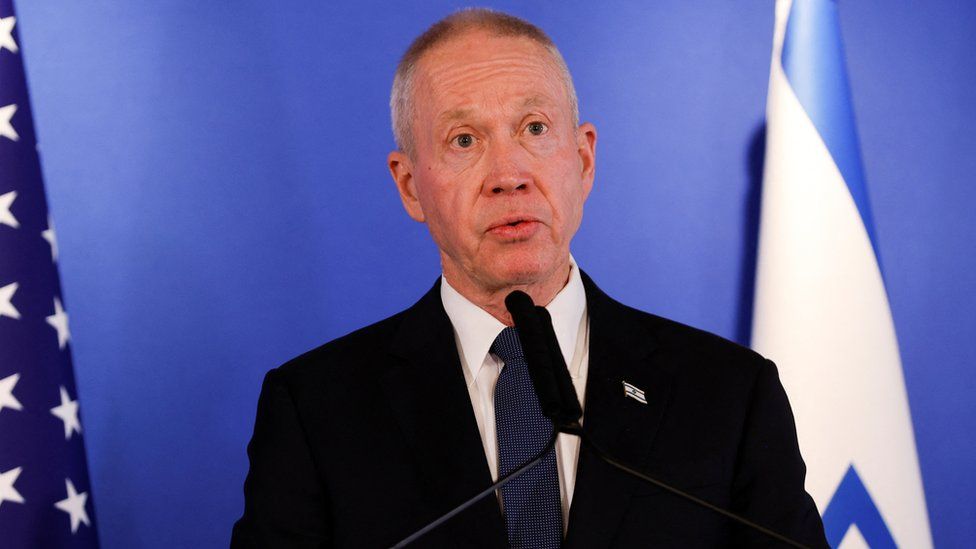
-
-
-
3 days ago
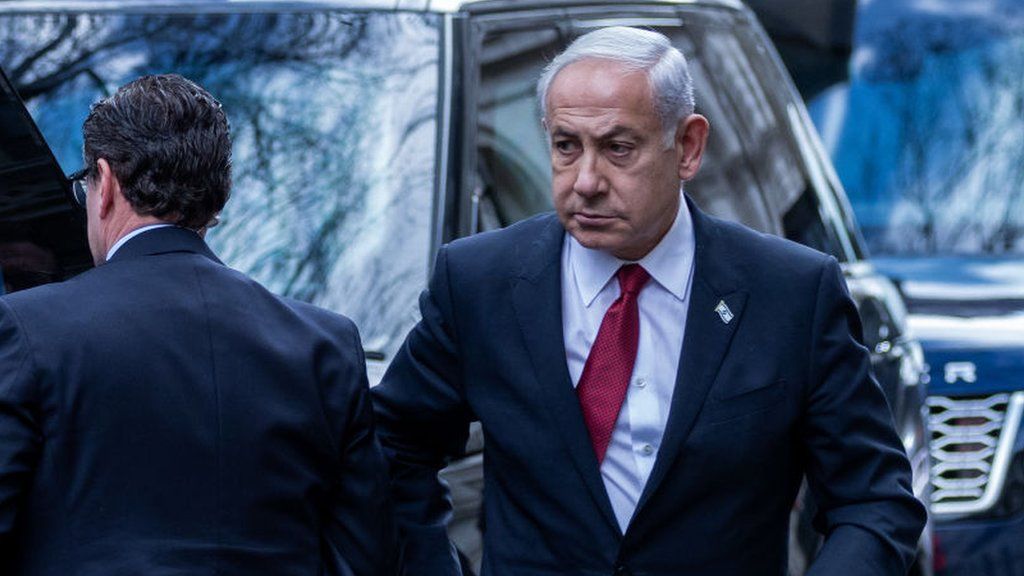
-
